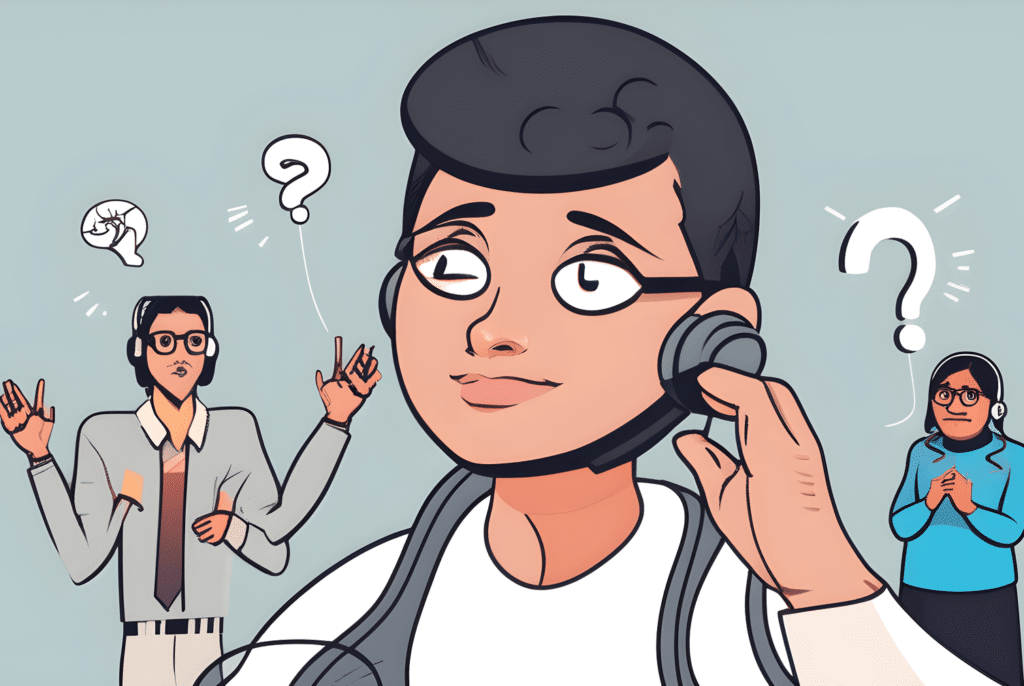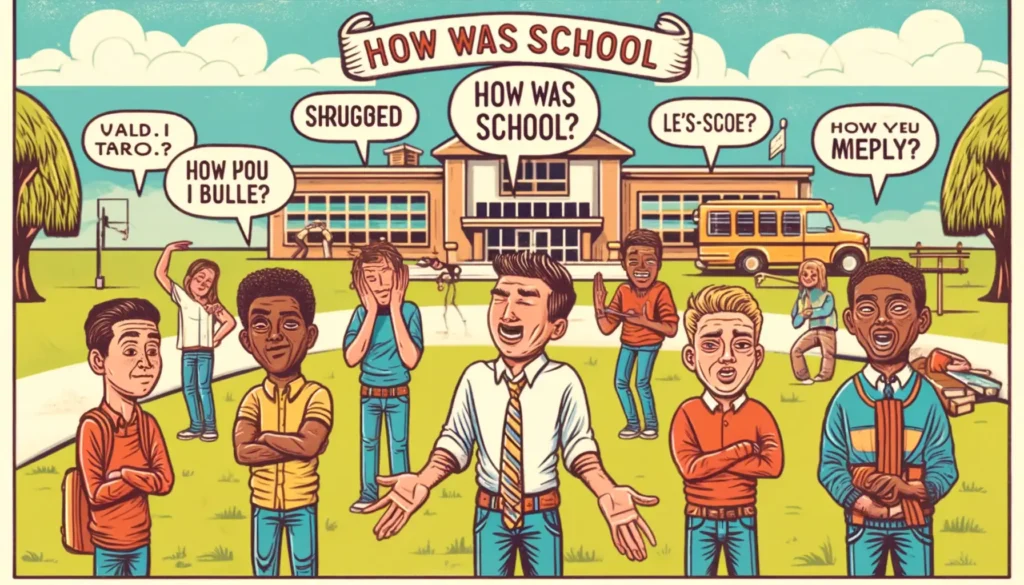When someone you care about expresses doubt or pain about your feelings toward them, especially with a statement like “You don’t love me anymore,” it can be an emotional and tense moment. The way you respond plays a crucial role in the conversation’s outcome. It’s a delicate situation that requires empathy, clarity, and thoughtful communication. How you react will determine whether the discussion leads to resolution, further conflict, or emotional healing.
In this blog post, we will explore various ways to respond to “You don’t love me anymore” while maintaining compassion and respect. Whether the person saying it is your partner, a close friend, or a family member, we will cover responses that suit different emotional contexts, relationships, and situations.
Understanding Why Someone Might Say “You Don’t Love Me Anymore”
Before diving into specific responses, it’s helpful to consider why someone might say such a thing. Understanding the underlying feelings can guide you in offering the most appropriate reply.
- Feeling Neglected: If your behavior has changed or if you’ve been less affectionate or attentive, they may feel that love is fading.
- Insecurity: Sometimes, people project their own insecurities onto their relationships, fearing rejection or abandonment even when there’s no evidence of it.
- Lack of Communication: When there’s insufficient communication about feelings, needs, and expectations, misunderstandings like this can arise.
- Previous Conflict: After an argument or disagreement, a person may say something like this out of frustration, anger, or hurt.
- Emotional Pain: When someone is experiencing emotional distress, they may say things that aren’t entirely accurate, but reflect their emotional state.
Understanding these reasons will help you respond with empathy and patience. Now let’s explore how you can respond in different situations.
1. Calm and Reassuring Responses
When someone says, “You don’t love me anymore,” it’s important to remain calm and reassure them. Often, people need validation and reassurance that their feelings are important to you. Responding with kindness and clarity can help ease their doubts.
Examples:
- “I love you, and I’m sorry if my actions have made you feel otherwise.”
- This response reaffirms your love and takes accountability for any actions that may have caused confusion.
- “That’s not true. I care about you deeply, and I don’t want you to feel that way.”
- Here, you emphasize your love and express your desire for the person to feel secure in your relationship.
- “I’m still here, and I still care about you. Let’s talk about what’s going on.”
- A reassuring statement that signals your willingness to work through the situation together.
- “I know things have been tough lately, but that doesn’t change how I feel about you.”
- A calm response that acknowledges the challenges in the relationship while reaffirming your feelings.
Why It Works:
- Reduces Anxiety: By offering reassurance, you help the other person feel less anxious and more certain of your commitment.
- Promotes Dialogue: These responses open the door for further conversation and understanding, leading to resolution.
2. Acknowledging the Feelings Behind the Statement
Sometimes, people say “You don’t love me anymore” because they are feeling hurt, frustrated, or neglected. Acknowledging their feelings without immediately getting defensive can create a more compassionate atmosphere.
Examples:
- “I can tell you’re upset, and I’m really sorry for making you feel that way. Let’s figure out what’s bothering you.”
- This response shows that you are focused on the other person’s emotions and are willing to listen.
- “It sounds like you’re feeling really hurt. Let’s talk about what’s going on.”
- A statement that empathizes with the emotional state of the person, which can help them feel understood.
- “I know things haven’t been easy, but I want to work on this. Let’s find out what we need from each other.”
- Acknowledges the situation and expresses a willingness to improve things.
Why It Works:
- Shows Empathy: You’re acknowledging their feelings, which helps them feel heard and respected.
- Fosters Communication: This response invites an open conversation about the issues at hand, which can lead to understanding and resolution.
3. Honest and Transparent Responses
In some situations, there might be truth to the statement that love has diminished or that the relationship is facing difficulties. Being honest and transparent can help clear up misunderstandings, but it’s important to approach this with care.
Examples:
- “I’ve noticed that things have changed between us, and I want to understand how we got here.”
- This response acknowledges the shift in feelings and opens the door to discussing what might have led to this point.
- “I don’t want to lie to you; I think we’re both feeling distant lately. Can we talk about how to reconnect?”
- A truthful response that invites a constructive conversation about how to address the issue.
- “I’ve been reflecting, and I know I haven’t been as attentive. Let’s figure out what we need to do to make things better.”
- An honest acknowledgment that can help start a productive dialogue on how to improve the relationship.
Why It Works:
- Builds Trust: Being open and honest can rebuild trust and show that you are committed to working through challenges.
- Promotes Growth: Honesty allows both individuals to understand where they stand and what needs to change in the relationship.
4. Playful and Lighthearted Responses
In some cases, a playful or lighthearted response can help ease the tension, especially in a situation where the person calling attention to the issue is not seriously accusing you but may be feeling insecure. Humor, when used appropriately, can defuse a heavy situation.
Examples:
- “Well, you’re stuck with me. Love me or not, I’m not going anywhere!”
- A lighthearted response that uses humor to reassure the person while still acknowledging the importance of the conversation.
- “You think I don’t love you? Just wait until you see my next surprise!”
- A playful, yet affectionate response that lightens the mood and shows your care in a fun way.
- “I may not always show it, but you know I love you, right?”
- A gentle, humorous response that lets the other person know you care, while also recognizing their feelings.
Why It Works:
- Reduces Tension: Humor can help relieve stress and make difficult conversations more manageable.
- Shows Affection: Playful responses can also reinforce the idea that you still love and care for the person, even in light of any challenges.
5. Defensive Responses
Sometimes, when someone says “You don’t love me anymore,” the natural reaction might be to become defensive. This can happen if you feel misunderstood or hurt by the statement. However, it’s important to proceed carefully. While defending yourself is natural, being overly defensive can escalate the situation.
Examples:
- “That’s not fair! I still love you, but we need to communicate better.”
- A response that defends your love but also expresses the need for better communication.
- “I’ve been doing my best. Maybe we’re just going through a tough time, but that doesn’t mean I don’t love you.”
- Here, you’re defending your commitment while acknowledging the challenges in the relationship.
- “I’ve never stopped loving you. But sometimes, we both need to put in more effort.”
- A response that defends your love while also pointing out the need for mutual effort.
Why It Works:
- Protects Your Feelings: Defending yourself can help clarify any misunderstandings.
- Promotes Accountability: Even when defensive, these responses recognize the importance of effort and communication in the relationship.
6. Silent or Non-verbal Responses
At times, silence or non-verbal communication might be the most appropriate response. If emotions are high and you feel like speaking might escalate the situation, taking a moment to collect your thoughts or providing comfort through gestures can be helpful.
Examples:
- Giving a comforting hug without saying anything.
- Physical affection can often convey love and support more effectively than words, especially when emotions are running high.
- Sitting quietly and holding their hand.
- This non-verbal communication shows that you’re present and that you care, even without speaking.
Why It Works:
- Allows for Calmness: Silence can give both individuals the space to reflect and calm down before continuing the conversation.
- Conveys Empathy: A non-verbal response can often communicate understanding, compassion, and love more powerfully than words.
7. Avoiding the Situation or Running Away
While it might feel tempting to avoid the conversation or walk away to escape uncomfortable feelings, this often leads to further miscommunication and confusion. Avoiding the situation only prolongs the misunderstanding and might lead to more hurt feelings.
Why It Doesn’t Work:
- Escalates Anxiety: Ignoring or running from the situation increases the other person’s anxiety and feelings of insecurity.
- Fosters Uncertainty: It prevents resolution and leaves the other person unsure of where they stand in the relationship.
Conclusion
When someone says “You don’t love me anymore,” it can be a heart-wrenching statement to hear. However, how you respond can make all the difference in navigating the conversation. Whether you choose to reassure



